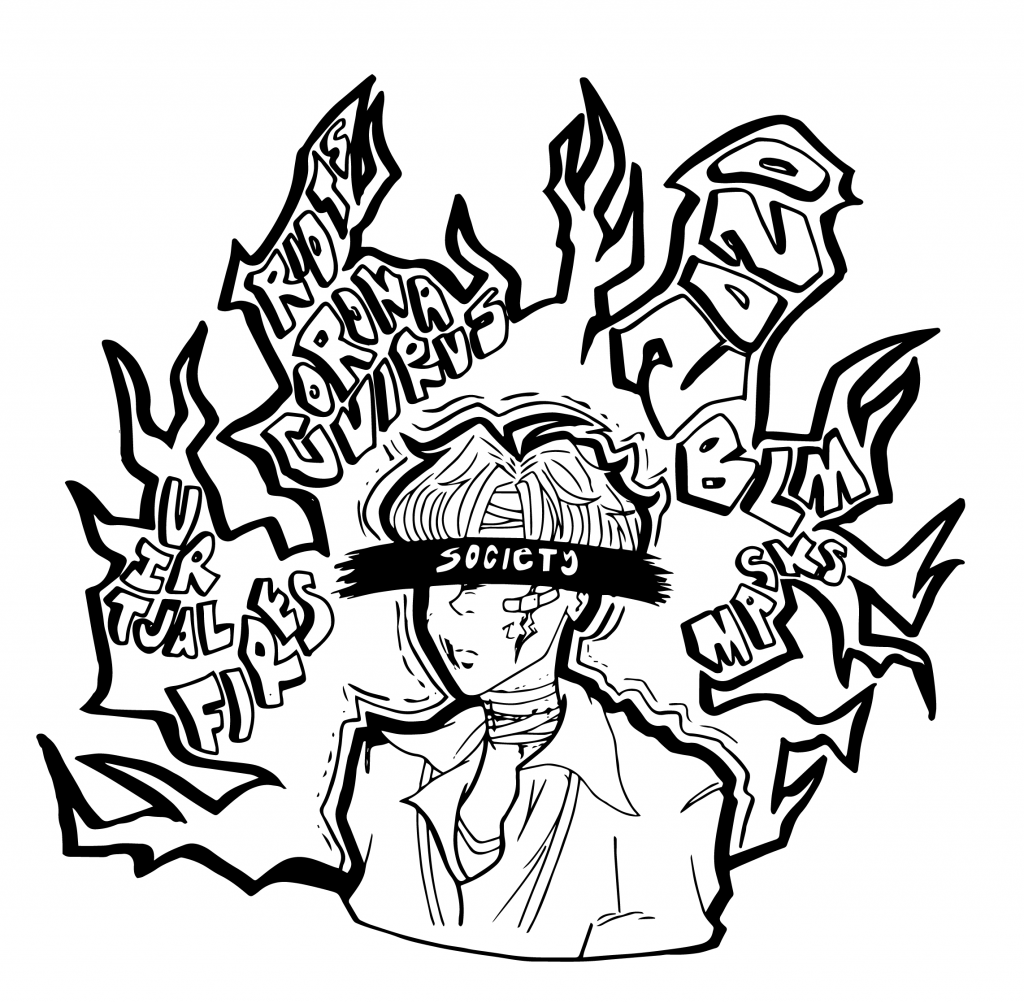The year 2020 was one of the most difficult years society has experienced, but how will this impact the future?
The English poet Thomas Gray was right. Ignorance is bliss… or at least that’s what half the population of the United States believes. A popular notion in the U.S. is that it’s the greatest country in the world. Two years ago when asked “why is America so great?” the majority of people would answer with “freedom.” However, the year 2020 has put this idea into perspective. On January 20, 2020, the first case of COVID-19 was diagnosed in the United States. Less than two months later, President Donald J. Trump declared the pandemic a national emergency.
During the pandemic, Black, Indigenous, people of color (BIPOC) have been disproportionately impacted and have received less care than their white counterparts. This inequality is non-unique to COVID-19, as people of color are significantly impacted by health conditions at higher rates. The National Academy of Medicine finds that “racial and ethnic minorities receive lower-quality health care than white people—even when insurance status, income, age, and severity of conditions are comparable.” During this time Black Americans have died at a rate of 1.6 times more than the rate of white Americans nationwide. Additionally, the Health Affairs Organization finds that “minority communities have a high likelihood of contracting the virus by living in urban areas and disproportionately working in higher-risk environments.” Moreover, the Bureau of Labor Statistics finds that “a greater number of African American workers are unable to work from home, compared to white workers.” This health care disparity has brought attention to a variety of human rights issues that the Black community faces.
On March 13, Breonna Taylor was shot to death in her Louisville home by police officers Brett Hankinson, Johnathan Mattingly, and Myles Cosgrove who were carrying out a warrant for her ex-boyfriend Jamarcus Glover who was believed to have been involved in a drug ring. In the middle of the night, Taylor was in bed with her boyfriend Kenneth Walker. The plainclothes police officers forced their way into Breonna Taylor’s apartment with a battering ram just after midnight. Alarmed, Walker fired a shot from his licensed gun in adherence to Stand Your Ground Laws, which infamously aided George Zimmerman in avoiding murder charges in the 2012 case of Trayvon Martin, of which struck Mattingly in the leg. In return, the three unannounced officers fired at the couple “discharging 32 rounds” according to the Federal Bureau of Investigations Ballistic Reports. Taylor was caught in the crossfire and died on her hallway floor. On September twenty-third Hankinson was charged, but not for Taylor’s death. He was charged for “Wanton Endangerment” for firing into a neighbors apartment. The other officers involved were not charged. Breonna Taylor’s name trended across social media until another high profile police killing joined her name on the trending page in May. On the 25th, George Floyd was murdered by Minnesota police officer Derek Chauvin, one of four police officers responding to Mr. Floyd using an allegedly counterfeit $20 bill. Chauvin knelt on Floyd’s neck while his colleagues stood by. Floyd pleaded, “I can’t breathe!” After 8 minutes and 46 seconds, Floyd died. When video flooded the internet, protests broke out across the nation. The late congressman and civil rights activist John Lewis expressed great pride in the people of the United States’ activism for equality. “It gives me hope that as a nation and as a people, we’re going to get there,” Lewis told Al Roker on The Today Show a month before Lewis’s passing.
The brutal murders that dominated media this past year brought issues that people of color have endured for years to the rest of the world. As American actor and film producer Will Smith said, “Racism is not getting worse, it’s getting filmed.” As a country, we must ask ourselves if there is enough evidence to support the idea that the United States is the greatest country in the world? The U.S ranks 49th in life expectancy, 7th in literacy, 27th in math, 22nd in science, and 3rd in median household income according to the Washington Post. The nation leads the world in three categories: the number of incarcerated citizens per capita, defense spending, and adults who believe angels are real. These truths have forced us to become a more conscious society. A society that recognizes its shortcomings and takes action to heal its wounds and make a change. On the eleventh of November, the state of Oregon became the first state in the country to end its war on drugs which hopefully represents the years to come. The devastations of the year two-thousand-and-twenty will remind the world to do better. Not just for the sake of boasting but for the sake of its people.
Nicola Naidoo
Staff Writer
Graphic: Kate Minn

